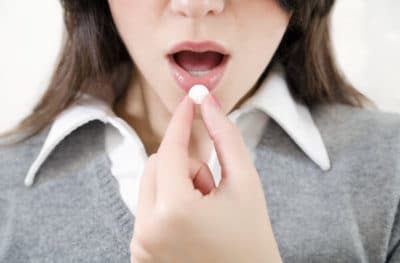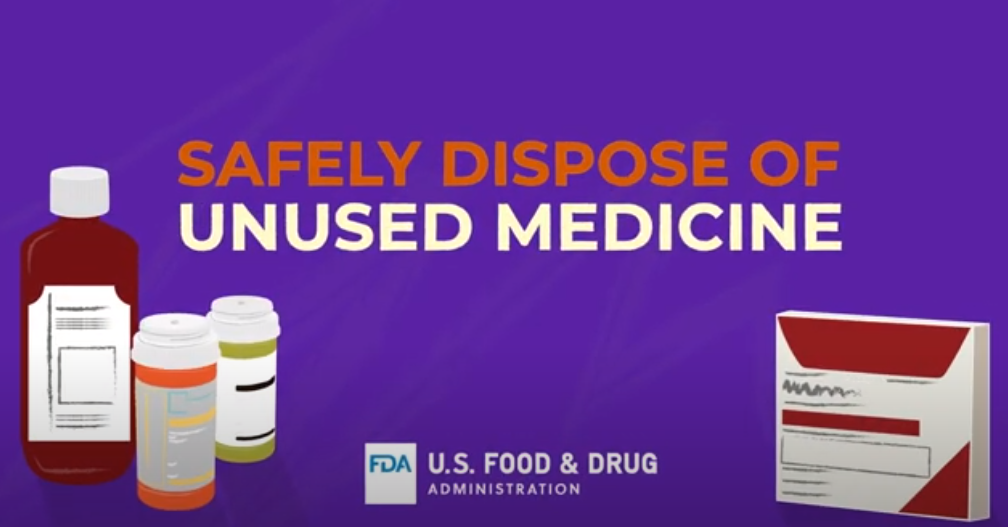Auntie Biache'
Well-Known Member
The physical addiction can be broken in very short order if the person wants to do so.
I felt like I had the flu for a bout a week. After that, no problems, other than the pain returning in spades.
The physical addiction can be broken in very short order if the person wants to do so.
We don't blame the booze for making an alcoholic, don't blame the drug for making an addict.
Exactly! I just read a short article of a woman who within a year of being given pain medication after the extraction of wisdom teeth died within a year from a heroin overdose. The dentist only prescribed 7 days of medicine. The family is now blaming the dentist for her addiction. In 7 days she became an addictNobody wants admit the person liked the way the meds made them feel, so they searched for more when the prescription ran out. This nonsense is what makes it so difficult for chronic pain patients to get the meds they need.
I had a tooth out earlier this year. I had filled a script for T3 when I had the abscess that caused it to come out and still had most of the pills left. I told the oral surgeon that I wouldn't need any additional meds. Took 2-3 more and tossed the rest. Back when I had my wisdom teeth out, prescribing opioids for routine dental work was not even a thing. But that was when doctors generally reserved them for cancer patients and patients who just came out of major surgery.
I've had 2 pulled this year. My dentist will only give Rx strength Ibuprofin now. Primary Care and Dentists won't prescribe them anymore (in my experiences) and refer you to Pain Management if you have chronic pain.
The Sheriff's office has a box in the lobby where people can properly dispose of unwanted medications.I had a tooth out earlier this year. I had filled a script for T3 when I had the abscess that caused it to come out and still had most of the pills left. I told the oral surgeon that I wouldn't need any additional meds. Took 2-3 more and tossed the rest. Back when I had my wisdom teeth out, prescribing opioids for routine dental work was not even a thing. But that was when doctors generally reserved them for cancer patients and patients who just came out of major surgery.
Yes. We don't need doped up critters in the sewers.The Sheriff's office has a box in the lobby where people can properly dispose of unwanted medications.
Yes, anything. It's just a drop box.Will the sheriff's office take ANY medications? I've got some 3 year old Metformin I'd like to dispose of safely.
Yes. We don't need doped up critters in the sewers.
So wrong.Where do you think the drugs go if you take them ?
Unless we have people systematically digging through household trash at the dump to comb through it for unlabeled pills, there is no risk to anyone if you dispose of leftover opiates in the household trash. Just don't toss it in the labeled bottle with your name and prescription on it.


And that's how it should be.
So wrong.
Only a fraction of a fraction of the drug is expelled down the crapper after you've ingested it and the body absorbs it and metabolizes it.

The Path Drugs Take Through the Body | Sunrise House
Click for information on the following 4 stages a drug undergoes while traveling throughout the body: absorption, distribution, metabolism, and excretion.sunrisehouse.com
Tossing drugs in the landfill contributes to contamination.

Medicine Disposal Myths and Facts
Medicine Disposal Myths and Facts Put medicines in their place! We can all now agree that flushing unused prescription and over-the-counter drugs that may be sitting around your home is not the right way to get rid of them. But you may have been hearing some confusing advice lately about whatwww.takebackyourmeds.org


So ... as grown, non-addict, responsible, adults, we're just supposed to be at the mercy of some other person wearing a white coat that gives the illusion of credibility of a doctor just because they went to school and were indoctrinated in classes sponsored or, "supported", with donations or endowments, by the medical and pharmaceutical industries? Or, to bow to the authoritahs and be good little serfs and visit drop boxes so they will get to pick and choose what they will keep before discarding the rest, and don't think it doesn't happen. No. I think I'm a gonna keep my little stash so I won't have to rely on some ass hat attempting to evaluate if I, "really", need a good pain med if something arises where a pain pill, or two, is needed for a short duration. What the medical and pharmaceutical industries, and government, want, is your continued reliance, but most importantly your dependency, on them. Geez, the submissive minds, unquestioning obedience, and actions of some people continues to astound me.And no, they are not meant to be stockpiled for any future pain you may experience.
If I may ...
So ... as grown, non-addict, responsible, adults, we're just supposed to be at the mercy of some other person wearing a white coat that gives the illusion of credibility of a doctor just because they went to school and were indoctrinated in classes sponsored or, "supported", with donations or endowments, by the medical and pharmaceutical industries? Or, to bow to the authoritahs and be good little serfs and visit drop boxes so they will get to pick and choose what they will keep before discarding the rest, and don't think it doesn't happen. No. I think I'm a gonna keep my little stash so I won't have to rely on some ass hat attempting to evaluate if I, "really", need a good pain med if something arises where a pain pill, or two, is needed for a short duration. What the medical and pharmaceutical industries, and government, want, is your continued reliance, but most importantly your dependency, on them. Geez, the submissive minds, unquestioning obedience, and actions of some people continues to astound me.
Most opiate drugs after you take them are metabolized by the liver and eliminated through the kidneys, some are eliminated through bile. So the drug or its metabolites either end up in urine or stool. They dont just magically disappear because a human took them.
They have undergone a chemical reaction and are not the same chemical any more than chlorine gas and sodium are the same thing as table salt (sodium chloride).
If that were the case an addict would only have to save their piss and could use it to get high again.Mh, not really the same thing as the minor changes the liver makes to most of the opiates before they are excreted. For the most part, it just adds some groups like glucronides which serve to make the stuff more water soluble. It doesn't change the underlying ring structure. Some of the opioids require metabolic changes to turn from a pro-drug to the active ingredient, but again that doesnt change the basic ring structure, just some side chains.
